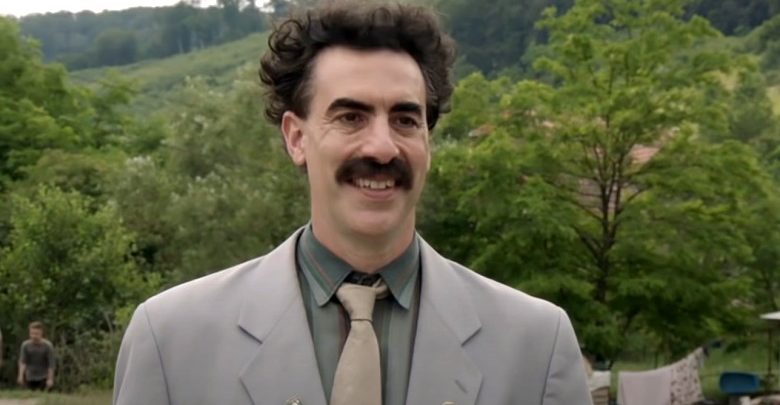Borat is back and he’s as funny as he can be
Real life might be just too crazy to lampoon, nowadays
 Amazon Studios
Amazon StudiosWhen Sacha Baron Cohen first burst onto the scene as the fictional Kazakh journalist Borat Sagdiyev, it felt like the mockumentary genre had finally jumped the shark.
Whether he was sporting an oversized Soviet-era suit, a neon green mankini, or just plain naked, Borat was almost always the most ridiculous thing in the room, but in the craziness that is 2020, it seems like Cohen might have finally met his match.
Borat Subsequent Moviefilm is the sequel to 2006’s Borat that nobody was asking for, but also the one that nobody complained about. The film finds Borat 14 years after the expedition across the United States that made him an international celebrity and his home country of Kazakhstan a global laughingstock (for anyone keeping score, those are all things that happened in real-life too). Borat has since been banned from reporting and sentenced to a life of hard labour in the gulag. That all changes though with the election of Donald Trump, and in an attempt to ingratiate himself with Trump, Kazakhstan’s premier sends Borat on one last trip to the United States to deliver a gift to “America’s most famous ladies man,” Mike Pence.
What ensues over the next 90 minutes is the typical barrage of blue, black, and physical comedy Borat is known for, plus more of the gotcha-style interviews that have dominated Cohen’s recent work. Borat is also joined by his equally oblivious and doubly resilient daughter Tutar (Maria Bakalova), but at the end of the day — and despite Cohen’s best efforts — it all still falls a bit flat.
The problem with Borat Subsequent Moviefilm is the same one that has plagued political satire more generally in the last four years — real life has gotten too crazy to be lampooned. What comedic spin are you supposed to put on a President who holds press conferences at landscaping businesses and suggests bleach as a possible treatment against the coronavirus? The joke has already been made, punchline and all, and time and time again Cohen is reduced to pointing out the chaos rather than being its architect.
Cohen’s political commentary is also a lot less subtle than it was in Borat, and to be fair, he doesn’t have much of a choice. Whereas 14 years ago it was possible to make a side-splitting comedy just by exposing America’s racist underbelly, Americans have told on themselves so much over the last four years that it’s hard to get anything on camera that you can’t find in the replies of a Trump tweet. As a result of that, Cohen is forced to make Borat’s prodding a little more overt, a little more direct, and frankly, a little more partisan. And although many of the shots Borat fires at Trump’s America are direct hits, much of the playful ignorance that made the character special gets lost in the fray.
To be fair, Borat Subsequent Moviefilm still has standout moments that make it more than worth a late night binge. The movie also has more heartfelt moments than its predecessor, which is always impressive considering the circumstances around a Borat movie. There is also the infamous hotel scene with Trump’s personal lawyer Rudy Giuliani, and despite it not being the smoking gun it was made out to be in the weeks leading up to the movie’s release, it’s still a revealing look into the standards and practices — or the lack of them — that govern the MAGA gang.
Borat Subsequent Moviefilm might not reach the expository or comedic heights of Cohen’s other work, but in a year that’s already managed to be the cruelest of cruel jokes, maybe it doesn’t need to. It might just be enough to watch Cohen do his best to be as silly as he can be, laughing along and hoping for the day that we can leave comedy to the comedians and make politics boring again.




